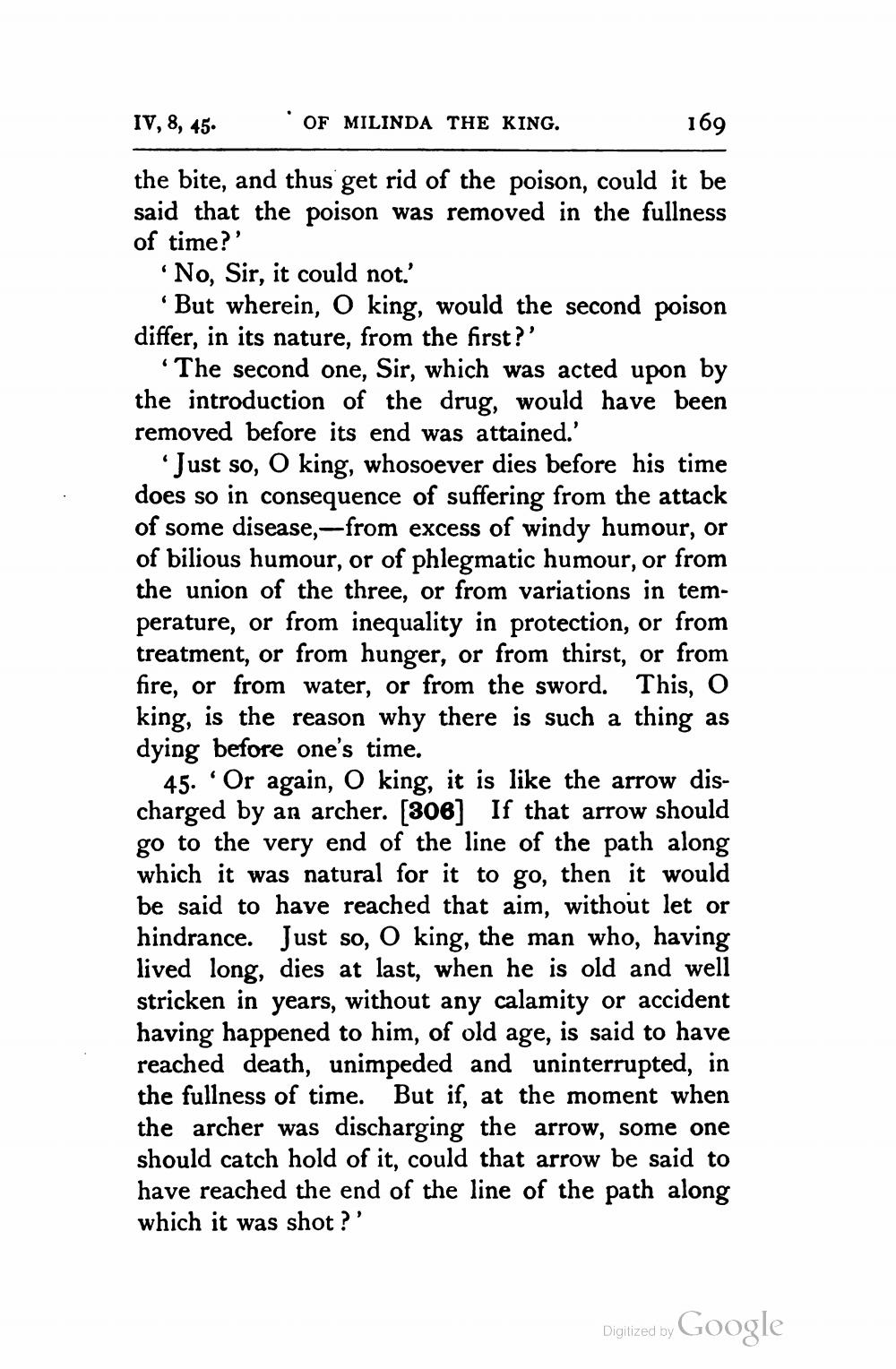________________
IV, 8, 45.
OF MILINDA THE KING.
169
the bite, and thus get rid of the poison, could it be said that the poison was removed in the fullness of time?' 'No, Sir, it could not.'
But wherein, O king, would the second poison differ, in its nature, from the first?'
'The second one, Sir, which was acted upon by the introduction of the drug, would have been removed before its end was attained.'
Just so, O king, whosoever dies before his time does so in consequence of suffering from the attack of some disease, - from excess of windy humour, or of bilious humour, or of phlegmatic humour, or from the union of the three, or from variations in temperature, or from inequality in protection, or from treatment, or from hunger, or from thirst, or from fire, or from water, or from the sword. This, O king, is the reason why there is such a thing as dying before one's time.
45. 'Or again, O king, it is like the arrow discharged by an archer. [306] If that arrow should go to the very end of the line of the path along which it was natural for it to go, then it would be said to have reached that aim, without let or hindrance. Just so, O king, the man who, having lived long, dies at last, when he is old and well stricken in years, without any calamity or accident having happened to him, of old age, is said to have reached death, unimpeded and uninterrupted, in the fullness of time. But if, at the moment when the archer was discharging the arrow, some one should catch hold of it, could that arrow be said to have reached the end of the line of the path along which it was shot ?
Digitized by Google




